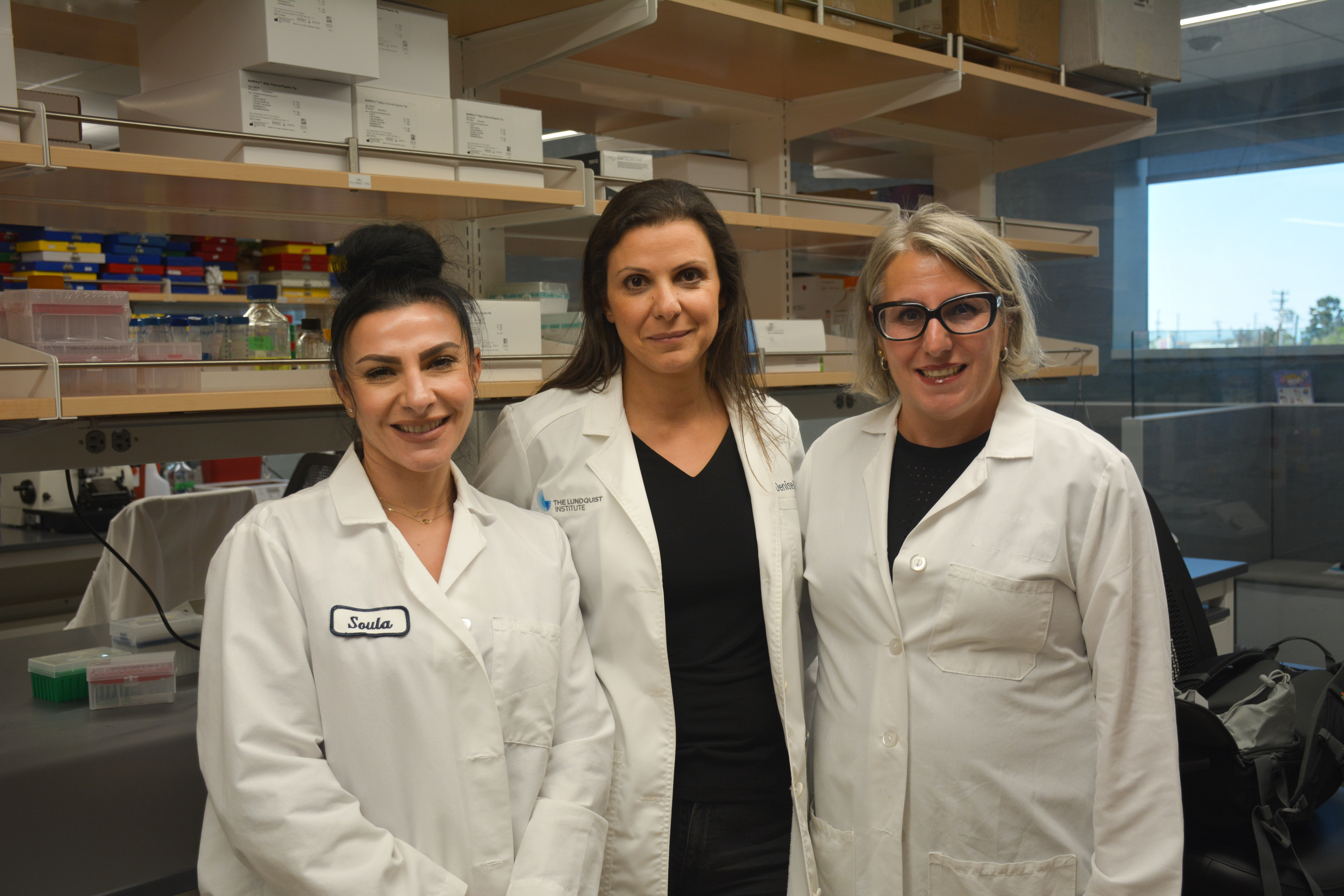Lundquist Institute awarded $5.4 million CIRM grant to expand the use of stem cells to model human disease and extend its reach to neighboring underserved and marginalized communities
Thursday, September 12, 2024

-
- We’re thrilled to announce that the California Institute for Regenerative Medicine (CIRM) has awarded a Shared Resources Laboratory: “the Stem Cell-based Partnership Resource for Investigating Human Diseases and Training (SPRINT)” to Dr. Denise Al Alam, PhD at The Lundquist Institute for Biomedical Innovation at Harbor-UCLA Medical Center (TLI). Other TLI investigators involved in this award include Dr. Michelina Iacovino, PhD, Dr. Soula Danopoulos, PhD, and Dr. Fawzia Bardag Gorce, PhD.
This $5.4 million grant supports a groundbreaking initiative that will expand the use of stem cells to model human disease and extend its reach to neighboring underserved and marginalized communities. SPRINT is designed to train researchers and students at TLI and neighboring Institutions that have a significant faculty and scholar representation of racial, ethnic, and social minorities, including women and LGBTQIA+ individuals, to use human pluripotent stem cells (hPSCs) to understand human diseases.
The SPRINT team, experts in disease modeling using various cell types—such as brain, blood, lung, bone, intestinal, and pancreas cells—will offer vital resources and support to investigators at Lundquist, partner organizations, and neighboring institutes. TLI is delighted to partner with Charles R. Drew University of Medicine and Science, California State University-Dominguez Hills, and California State University, Los Angeles. These partnerships help ensure that the SPRINT core is an inclusive and powerful resource for advancing stem cell research and improving health outcomes in underserved communities, making SPRINT a valuable asset for the broader Los Angeles scientific community, especially in South LA and South Bay, where access to stem cell research facilities has been limited.
Why This Matters:
· Empowering Underserved Communities: The project helps to bridge gaps in access to essential resources and expertise, making cutting-edge research in stem cell science more accessible, especially for those in underserved regions.
· Enhancing Patient Outcomes: The award will support the development of regenerative tools and disease modeling that could transform the diagnosis and treatment of conditions often faced by populations with limited medical services.
Stay tuned for updates as we embark on this transformative journey!
- We’re thrilled to announce that the California Institute for Regenerative Medicine (CIRM) has awarded a Shared Resources Laboratory: “the Stem Cell-based Partnership Resource for Investigating Human Diseases and Training (SPRINT)” to Dr. Denise Al Alam, PhD at The Lundquist Institute for Biomedical Innovation at Harbor-UCLA Medical Center (TLI). Other TLI investigators involved in this award include Dr. Michelina Iacovino, PhD, Dr. Soula Danopoulos, PhD, and Dr. Fawzia Bardag Gorce, PhD.
